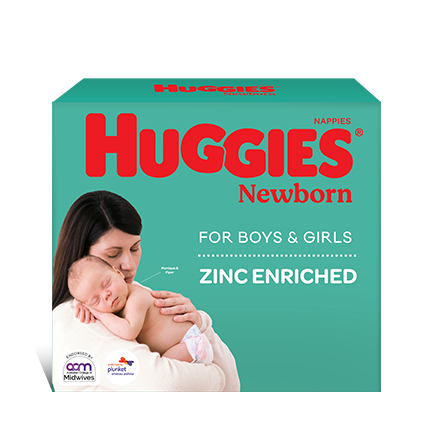You may find that you need extra help and support after the birth of your baby. It helps if you know what to expect – and where to find the information you need.
Postnatal depression (PND) is quite common. It affects around 15% of new mothers, but many more feel tired, low, occasionally distressed, isolated and lonely. It usually starts about three weeks or so after the birth but can become evident many months after you have had your baby. There is no fixed timeframe or formula for how you are supposed to feel.
Isolation does seem to be part of postnatal depression. It can be hard to get out and about and to stay in touch with friends when you have a new baby. Or when you do get out, everyone seems to be coping better than you are – and you feel even worse than before.
It could be that guilt and disappointment are part of depression. Maybe you feel bad because you don’t think you love your baby as much as you feel you should. Or you thought being a mum would be wonderful – and it just isn’t. There are many reasons that a mum can feel like she is not coping with her role as mother.
Some experts think the cause might be connected with your changing hormones, among other things that can affect your abilty to cope. These are some of the feelings you might have if you have postnatal depression:
- You wake up feeling exhausted, every day, even after a long sleep.
- You can’t sleep, no matter how tired and exhausted you are.
- You find it hard to concentrate on something, or organise yourself, or other simple tasks.
- Small things take on huge importance and you may find it hard to put them into perspective.
- You feel you’re a failure as a mum.
- You can’t feel much, as if experiences are happening to someone else.
- You find yourself feeling tearful, and sometimes weeping, and you aren’t sure why.
- You lose track of time, and find hours go by and you can’t be sure what you’ve been doing.
You need help if you have any of these symptoms occur often enough to worry you. Everyone feels tired, sad and a bit weepy from time to time – but if this is the usual thing for you, then you may have postnatal depression.
Who to ask for help:
Your baby health centre is trained to offer support to women with postnatal depression, and to advise when further help from your doctor or elsewhere would be useful. They may be able to put you in touch with other mums or other support services in your local community.
Your doctor may prescribe anti-depressants, or refer you to other forms of help. Some medications can have an affect on your baby if you are breastfeeding so it’s important to consider this when organising your treatment. Friends, your partner and family can also help and support you. You don’t need to hide how bad you feel – you deserve a lot of support at this time. A counsellor or psychotherapist (via your doctor) can also help. ‘Talking therapy’ is regarded as the most effective in the treatment of PND. There are now Medicare rebates available for some psychological treatments.
The important point is that PND is curable and managable – with the right help.
Your baby needs you to feel okay too, so it is worth asking for the help that you need.
Use these resources in your community.
postnatal mental illness
Don’t confuse postnatal depression with the ‘baby blues’ some women have after the birth for no more than a few days.
About one new mum in every 500 has an especially severe form of postnatal mental illness called puerperal psychosis. This means she may have hallucinations, or stay awake for days, or be extremely ‘high’ and energetic. It’s always obvious to the people around the mum that something’s not right. This form of illness is not postnatal depression, and it needs immediate medical help. Some women need to be in hospital for the right sort of help.
What is the community doing about the issue of PND?
A new national action plan to help women who experience depression during and after pregnancy is being developed by beyondblue: the national depression initiative, in association with a group of perinatal mental health expert.
Bipolar disorder in the postnatal period
Bipolar disorder (also known formally as manic depression), leads a woman to experience periods (called episodes) of depression, which leaves you feeling low and lacking energy, as well as mania (feeling on a high, with elevated mood and lots of energy).
Whether experiencing the symptoms of depression or mania, it is very important to seek help as early as possible. Often the women will not recognise the symptoms in herself, so partners and family members play a critical role in observing changes in character and taking the lead to ensure she gets help early.
Bipolar disorder significantly impacts on a woman's ability to care for her baby and herself so it is very important to seek urgent assistance from your general practitioner, mental health service or a hospital emergency department to ensure the mother is safe, and effective treatment for bipolar disorder can be put in place as soon as possible.
For more detailed information about bipolar disorder and managing the condition in the postnatal period visit http://cope.org.au/first-year/postnatal-mental-health-conditions/bipolar-disorder/
Postpartum psychosis
Postnatal psychosis is a rare condition that affects around 1 or 2 in every thousand mums. It is a very serious mental health condition that requires urgent attention and treatment.
Postpartum psychosis occurs in the first few days or weeks after a baby is born. The condition leads to marked changes in the mother's behaviour, and can include some of the following early signs for the mother:
- finding it hard to sleep
- feeling full of energy or restless and irritable
- feeling invincible strong, powerful and unbeatable
- having strange and irrational beliefs such as that someone is trying to harm the baby.
These symptoms usually begin to emerge from within 2 days of giving birth to two weeks after birth but in some cases can develop later (up to twelve weeks after the baby's birth).
Over time, this range of symptoms may then be followed by a combination of very different types of symptoms, which can affect the mothers energy, thinking, behaviour and mood. If you are noticing these symptoms and they seem out of character for you or your partner, talk to your health professionals about what you have noticed as soon as possible.
Early detection and treatment is essential. This will require medical treatment from a specialist and most likely the woman will need to spend time in hospital where she can be closely monitored. Treatment can take time, and have significant impacts on all family members, so it is important to be aware and draw on support networks.
For more detailed information about postpartum psychosis, symptoms and treatment visit http://cope.org.au/first-year/postnatal-mental-health-conditions/postpatum-psychosis/
Support
Last Published* May, 2024
*Please note that the published date may not be the same as the date that the content was created and that information above may have changed since.























